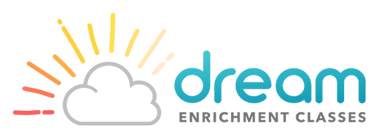Introducing STEM Score
Dream Enrichment Classes
Below you'll find our guest blog post from Paul de Gennaro. We're also offering all blog readers a huge discount on your STEM Score assessment for a limited time. Use code SCORE29 to snag your STEM Score Assesment for only $29 (that's $70 off!)
Visit dreamclasses.org/stem-score to learn more or purchase with your coupon.
We all have different strengths and abilities. The question is how well do you know your own child’s strengths and abilities? Have you ever really thought about how your child experiences the world around them? Do they see what you see? Do they hear what you hear? Do they process that incoming information the same or different from you? And how does any of this impact their ability to learn in the classroom?
As parents, we generally try to provide our children with as many enriching experiences as possible with the hope that we are optimizing their “development”. Okay, maybe you weren’t exactly thinking in those terms, but intuitively you just have a sense that these experiences are of great value to them. Giving kids the opportunity to explore the world through a number of different modalities (auditory, visual, tactile, smell, etc.) helps fine tune these skills and ultimately improves their ability to learn. The issue becomes choosing from the myriad opportunities available to kids these days. How should a parent decide what to include, or should they just have their children do any and everything possible?
These decisions can become even more important when considering activities that may improve their ability to achieve academically. One good way to think about this is by considering the example of exposing our kids to sports at an early age. In this instance the emphasis shouldn’t be on winning or losing, but on skill development for long-term enjoyment and success with exercise and sports in general. When applying this concept to “academics”, we need to be mindful that it shouldn’t be about whether or not they are “achieving/winning” in a standards-based curriculum at an early age. Instead, there should be an emphasis placed on developing skills as a learner for long-term success. You would think success and skill development are synonymous, but they just aren’t. Especially when you apply this thinking to early childhood education. If we could predict success at an early age, we would know whom the next Messi, Steph Curry, etc. would be at a very early age. But any experienced coach knows that a child “achieving” on the soccer field (for instance) at 9 years old has almost no bearing on their potential for success in high school or college. Why would academics be any different? Our ability to learn changes/improves as we age, therefore we should pay less attention to early achievement and more attention to how our child learns, especially when it comes to the all important Science, Technology, Engineering, and Math (STEM) content.
Hands on activities offered by Dream Enrichment place an emphasis on a number of very important skills for learning science content (spatial ability, proportional reasoning, language acquisition, etc.). Not only will you're your child improve these skills correlated with long-term STEM success, but they will be given the freedom and space to do so at their own developmental pace, and without judgment (i.e. grades). Learning new coding terminology in our Honeycode class, specific drawing techniques in our Firefly Art class, or spatial skills in our Early Engineers class will definitely give your child the skills needed for continued STEM learning. Additionally, your child will build confidence that they can succeed in a number of different ways that go beyond their typical classroom experience. As a parent, you too will learn more about your child’s strengths and abilities in these areas and will be better equipped to help them further develop these skills.
So take the opportunity to learn more about how your child is experiencing the world around them. Discover their strengths and abilities, especially as they relate to potential for success in STEM. More importantly, provide your child the opportunity to explore STEM content in our classes in ways that aren’t being provided in the typical classroom environment. Not everyone will be a Leonardo da Vinci or Marie Curie, but you can certainly provide every opportunity for you child to find his or her own success in STEM.
Paul de Gennaro
Learn More About STEM Score
Join the club!
Join our VIP (Very Important Parent) Club! Be the first to find out about upcoming classes, specials, and discounts.


